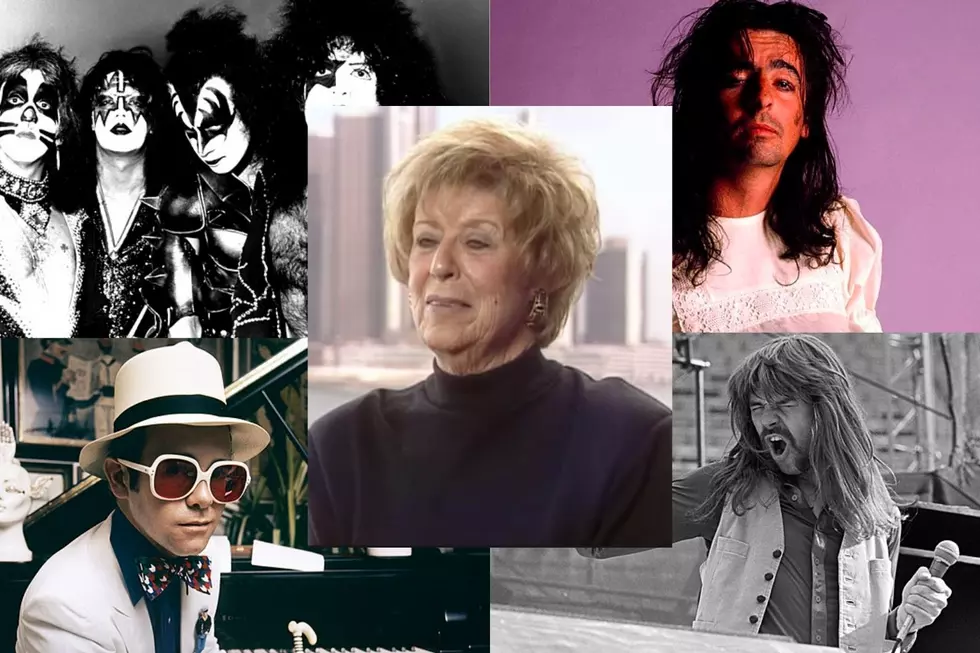
Rosalie Trombley, Radio’s ‘Girl With the Golden Ear,’ Dead at 82
Radio executive Rosalie Trombley, who pushed the careers of Aerosmith, Kiss, Alice Cooper, Elton John, Queen and many others, died at the age of 82 on Nov. 23, multiple sources confirmed.
The award-winning music director, whose influenced stretched far beyond her employment in Canada, had been ill for some time. Nicknamed the "girl with the golden ear," she’d garnered a reputation for being able to identify future hits, helping her predictions become reality by placing them in rotation. Bob Seger’s 1973 track “Rosalie” – later covered by Thin Lizzy – was a tribute to her talents.
“Rosalie was an icon, a trailblazer, and our friend,” Seger said in a social media statement. “Through her hard work and incredible instincts, she achieved a rare level of influence and power in music. When she got behind your record, other stations would follow suit."
"She was literally a gatekeeper to national success," the rocker continued, "and we were so fortunate to have her support, especially on many of our early records. She was an integral part of our journey and we are eternally grateful. We will miss her.”
Listen to Bob Seger's ‘Rosalie’
Trombley started her career as a receptionist at top 40 station The Big 8 before becoming music director in 1967. She remained in that position until 1987, then moved to Detroit’s WLTI-FM, and on to Toronto’s Key 590 before her retirement.
In 1992, her influence in the U.S. was recognized via a Lifetime Achievement Award at the Motor City Music Awards. The Canadian Music and Broadcast Industry Awards named a category after her in 2005, dedicated to “women who have blazed new trails in radio.” She received the revered Walt Grealis Special Achievement Award at the Junos in 2016.
Watch a Video on Rosalie Trombley's 2016 Walt Grealis Special Achievement Award
“She loved what she did, but she never looked at it in any kind of grand way,” her son Tim Trombley told Billboard in 2016. “It was just what she had to do to raise her three kids and it just happened to be something that she really enjoyed doing.” He cited the example of John’s 1974 hit “Bennie and the Jets,” which wasn’t set to be released as a single until Trombley discovered it was generating attention. “That's a whole side topic, how she pioneered doing radio sales tracking,” he said.
“She found out that one of the urban stations in Detroit was playing it,” he continued, adding that, as a result, people were going to local record shops and asking to buy it. “She started playing it and the same thing happened.… She let MCA, now Universal, know the following week what had happened… [telling them] if they were smart they would make it the next single. … Within a couple of days she had a call from Elton John himself, wanting to know why she thought it should be a single… she told him, 'I think the song's a hit; our listeners think the song's a hit; here's what happened at urban radio in Detroit; it's happening for us now; if you want to reach a black audience, you really should consider making this your next single,' and he did and the rest is history. It was one of his biggest hits ever.”
Liston to Elton John's ‘Bennie and the Jets’
In Memoriam: 2021 Deaths
More From Ultimate Classic Rock









